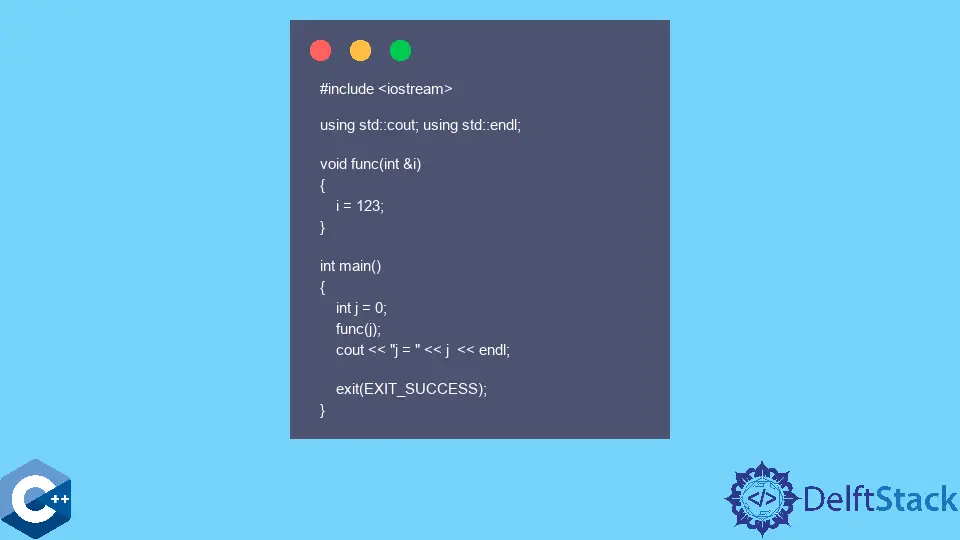Call by Reference vs Call by Value in C++
- What is Call by Value?
- What is Call by Reference?
- When to Use Call by Value vs Call by Reference
- Conclusion
- FAQ

When diving into the world of C++, one of the fundamental concepts that programmers encounter is the difference between call by reference and call by value. Understanding these two methods is crucial, as they significantly impact how data is passed to functions and how modifications within those functions can affect the original data.
In this article, we will explore the nuances of each method, providing clear examples and explanations to help you grasp the differences. Whether you are a beginner or looking to brush up on your C++ knowledge, this guide will illuminate the distinctions between call by reference and call by value, enhancing your programming prowess.
What is Call by Value?
Call by value is the most common method of passing arguments to functions in C++. When you pass an argument by value, a copy of the actual value is made and sent to the function. This means that any changes made to the parameter inside the function do not affect the original variable. This method is straightforward and helps to prevent unintended side effects, making it a safe choice for many scenarios.
Here’s a simple example to illustrate call by value:
#include <iostream>
using namespace std;
void modifyValue(int num) {
num = 20;
cout << "Inside function: " << num << endl;
}
int main() {
int originalValue = 10;
modifyValue(originalValue);
cout << "Outside function: " << originalValue << endl;
return 0;
}
Output:
Inside function: 20
Outside function: 10
In this code, we define a function modifyValue that attempts to change the value of the parameter num. However, since num is a copy of originalValue, the changes do not affect originalValue in the main function. The output clearly shows that the original value remains unchanged.
What is Call by Reference?
In contrast, call by reference passes the actual reference (or address) of a variable to the function. This means that any changes made to the parameter inside the function directly affect the original variable. This method can be more efficient, especially for large data structures, as it avoids copying large amounts of data. However, it also introduces the risk of unintended side effects, as changes in the function can modify the original data.
Let’s look at an example of call by reference:
#include <iostream>
using namespace std;
void modifyReference(int &num) {
num = 20;
cout << "Inside function: " << num << endl;
}
int main() {
int originalValue = 10;
modifyReference(originalValue);
cout << "Outside function: " << originalValue << endl;
return 0;
}
Output:
Inside function: 20
Outside function: 20
In this example, we define the function modifyReference with a reference parameter. When we call this function with originalValue, any modifications to num will directly affect originalValue. As shown in the output, both inside and outside the function, the value is now 20, demonstrating how call by reference works.
When to Use Call by Value vs Call by Reference
Choosing between call by value and call by reference depends on the specific requirements of your program. Here are some guidelines to help you decide:
-
Use Call by Value when:
- You want to ensure that the original data remains unchanged.
- The data being passed is small, such as basic data types (int, char).
- You need to avoid side effects.
-
Use Call by Reference when:
- You are working with large data structures (like arrays or objects) and want to avoid the overhead of copying.
- You need to modify the original data within the function.
- You want to return multiple values from a function.
By understanding these guidelines, you can make informed decisions about how to pass arguments in your C++ programs, optimizing both performance and safety.
Conclusion
In summary, both call by reference and call by value are essential concepts in C++ programming, each with its own advantages and use cases. Call by value provides safety by preventing unintended modifications to the original data, while call by reference offers efficiency and the ability to modify the original variable. By mastering these techniques, you will enhance your coding skills and write more effective C++ programs. As you continue your programming journey, keep these distinctions in mind to choose the best approach for your specific needs.
FAQ
-
What is the main difference between call by value and call by reference?
Call by value creates a copy of the variable, while call by reference passes the actual variable, allowing modifications to affect the original. -
When should I use call by value?
Use call by value when you want to ensure that the original data remains unchanged and when passing small data types. -
Can I use call by reference with basic data types?
Yes, call by reference can be used with basic data types, allowing you to modify their values directly. -
Does call by reference improve performance?
Yes, especially when dealing with large data structures, as it avoids the overhead of copying data. -
Are there any risks associated with call by reference?
Yes, since it allows functions to modify the original data, it can lead to unintended side effects if not used carefully.
Founder of DelftStack.com. Jinku has worked in the robotics and automotive industries for over 8 years. He sharpened his coding skills when he needed to do the automatic testing, data collection from remote servers and report creation from the endurance test. He is from an electrical/electronics engineering background but has expanded his interest to embedded electronics, embedded programming and front-/back-end programming.
LinkedIn Facebook